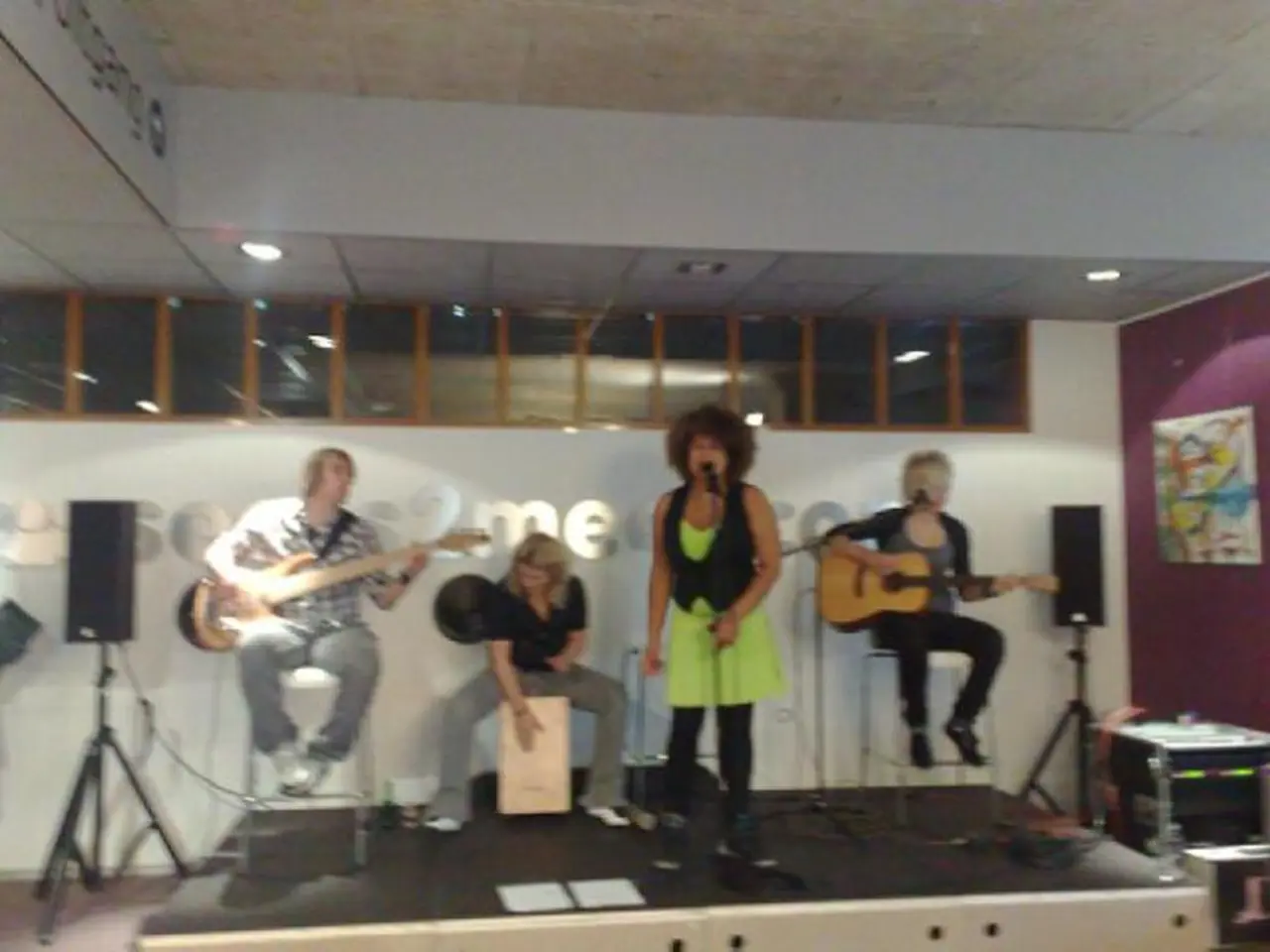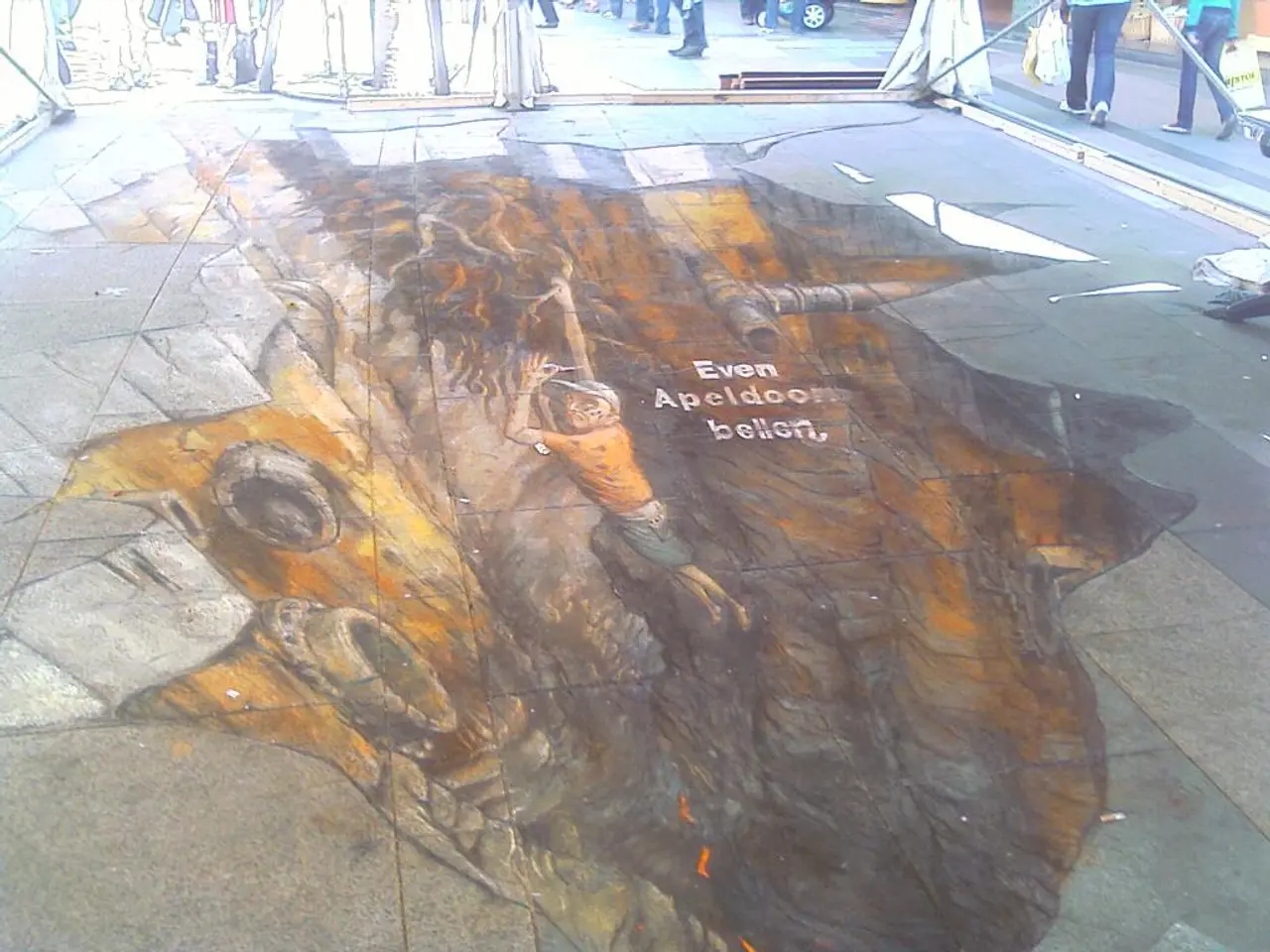Emergence of Virtual Concerts: Potential Dominance in the Music Sphere?
In the ever-evolving world of music and entertainment, virtual concerts have emerged as a significant trend, promising a new era of convenience and immersion. These online performances, available on platforms like YouTube, Twitch, Zoom, and more, can be live or recorded, catering to different preferences.
The virtual concert platform market is projected to grow significantly, reaching $127.63 billion by 2029, driven by advancements in technology such as VR, AR, and blockchain[1]. This growth indicates a strong future for virtual events, but it doesn't mean that live concerts will fade away.
As venues reopen, in-person events are regaining popularity, and the music industry is adapting to incorporate both formats. Companies like Live Nation Entertainment are investing heavily in technology to enhance both live and virtual experiences, including VR, live streaming, and AI-driven personalization[3][4].
Virtual concerts offer a seamless, hassle-free experience, eliminating parking, crowds, and long lines, and allowing audiences to attend from the comfort of their homes. They are also environmentally friendly, significantly reducing carbon emissions compared to live concerts. Ticket fees for virtual concerts can sometimes be more affordable, making them a cost-effective way to attend a concert, with reduced travel and accommodation expenses.
However, live concerts provide unique social and experiential value that many fans still prefer. Virtual concerts, despite their advancements, may not entirely surpass live concerts. Instead, both formats are likely to coexist, offering different experiences and benefits to fans and artists alike.
The future of concerts will likely be a hybrid model, combining the best of both worlds to cater to diverse preferences and technological advancements. Audiences can interact during virtual concerts and enjoy a realistic concert experience, thanks to VR and AR technologies. In 2020, Travis Scott held a groundbreaking virtual concert in Fortnite, attracting 27.7 million players, and BTS's "Bang Bang Con" virtual concert amassed 50 million views globally[5].
Virtual concerts represent an exciting future for music and entertainment, offering equal interaction opportunities with artists, through features like virtual meet-and-greets and chat rooms. The future involves the use of VR and AR technologies for more immersive and authentic experiences, making virtual concerts an appealing alternative to live concerts for many.
[1] Grand View Research. (2021). Virtual Concert Market Size, Share & Trends Analysis Report By Component (Hardware, Software, Services), By Technology (VR, AR, Blockchain), By Platform (PC, Mobile, Console), By Region, And Segment Forecasts, 2021 - 2028. [2] Pollack, A. (2021). Live Music Is Back. But the Pandemic Has Changed Everything. The New York Times. [3] Live Nation Entertainment. (2021). Press Release: Live Nation Entertainment Announces Q1 2021 Results. [4] Variety. (2021). Live Nation Announces Q1 2021 Results, Boasting $1.4 Billion in Revenue. [5] Billboard. (2020). Travis Scott's Fortnite Concert Attracts 27.7 Million Players. [5] Billboard. (2020). BTS's 'Bang Bang Con' Virtual Concert Amasses 50 Million Views Globally.
- As the virtual concert market continues to grow, reaching an estimated $127.63 billion by 2029, advancements in technology like VR, AR, and blockchain are expected to further improve the immersive experience.
- The coexistence of both live and virtual concerts in the future is likely, as in-person events regain popularity and companies invest in enhancing both formats with technology.
- In contrast to virtual concerts, live concerts offer a unique social and experiential value that some fans still prefer, despite their environmental and financial benefits.
- Virtual concerts, offering the possibility of interaction with artists through features such as virtual meet-and-greets and chat rooms, represent an exciting frontier for music and entertainment, with VR and AR technologies playing a key role in making virtual concerts an authentic and immersive alternative to live concerts.




